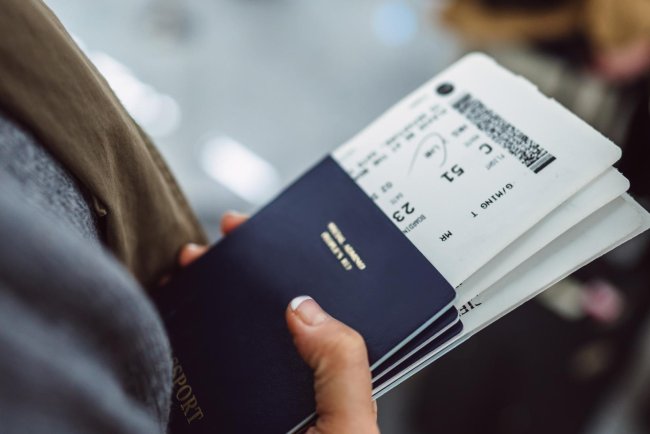1. What should I do immediately after losing my passport while traveling abroad?
Answer: If you lose your passport while traveling, first, stay calm and thoroughly search for it in places you recently visited. If you cannot find it, report the loss to the local police and obtain a copy of the police report. Then, contact your country’s embassy or consulate for assistance in getting a replacement passport. Additionally, notify your travel insurance provider and inform your airline or travel agent about the situation.
2. How can I find the nearest embassy or consulate if I lose my passport?
Answer: To locate the nearest embassy or consulate, search online using terms like “[Your Country] embassy [City]” or “[Your Country] consulate [City].” You can also visit your government’s official travel website for a list of diplomatic missions. Alternatively, contact local tourist information centers for assistance.
3. What documents do I need to replace a lost passport?
Answer: To replace a lost passport, you typically need to provide:
- A police report or a receipt confirming the report.
- Proof of identity (such as a driver’s license or national ID card).
- Passport photos that meet the specific requirements of your country.
- Completed passport application forms.
- Any available copies or digital scans of the lost passport.
- Payment for the replacement fee.
4. How long does it take to get a replacement passport?
Answer: The time to receive a replacement passport can vary based on the embassy or consulate's processing time and your specific situation. In urgent cases, such as for emergency travel, an expedited passport may be issued within a few days. Standard processing times can take several weeks. It's best to inquire directly with the embassy or consulate for an estimated timeline.
5. Can I travel with an emergency passport?
Answer: Yes, you can travel with an emergency passport or temporary travel document issued by your country’s embassy or consulate. These documents are designed for urgent travel and typically allow you to return to your home country or continue your travels, but they may have specific limitations.
6. What should I do if I lose my passport while in a remote area with no nearby embassy?
Answer: If you’re in a remote area with no nearby embassy or consulate, contact the nearest embassy or consulate by phone or email for guidance. They may direct you to a nearby diplomatic mission or provide instructions on how to proceed. If necessary, you might need to travel to a larger city with an embassy or consulate for assistance.
7. How can I prevent identity theft if my passport is lost or stolen?
Answer: To prevent identity theft, monitor your financial accounts and credit reports for any suspicious activity. Consider placing a fraud alert or credit freeze with major credit bureaus to protect against unauthorized access. Report the loss to your financial institutions and follow any additional steps recommended by them.
8. Will my travel insurance cover the loss of my passport?
Answer: Many travel insurance policies cover the loss of a passport, including costs for replacement and additional expenses incurred due to the loss. Check your policy details and contact your insurance provider to file a claim and understand what is covered.
9. How can I contact my embassy or consulate if I lose my passport?
Answer: You can contact your embassy or consulate by phone, email, or in person. Find contact information on the embassy’s or consulate’s official website or by searching online. Many embassies and consulates also have emergency contact numbers available for such situations.
10. What should I do if I am traveling with minors and lose their passports too?
Answer: If you lose passports for minors, follow similar steps as for an adult. Report the loss to local authorities, contact your country’s embassy or consulate, and provide all necessary documentation for the minors. Ensure you have copies of any relevant documents and follow any additional requirements for minor travelers.
11. How can I replace a lost passport if I am traveling in a country with no diplomatic representation from my home country?
Answer: If your home country does not have diplomatic representation in the country you’re visiting, you may need to contact the nearest embassy or consulate of a neighboring country that can assist you. They might provide temporary support or guide you to the nearest diplomatic mission of your home country.
12. What should I do if my passport was stolen rather than lost?
Answer: If your passport was stolen, report the theft to local police immediately and obtain a copy of the police report. Then, contact your country’s embassy or consulate to report the theft and begin the process of getting a replacement passport. Also, notify your travel insurance provider and financial institutions.
13. How can I expedite the process of getting a replacement passport?
Answer: To expedite the process, request expedited service at the embassy or consulate and provide all necessary documentation promptly. Explain the urgency of your situation and any immediate travel plans you have. Some embassies offer faster processing for emergency situations.
14. What are the typical fees associated with replacing a lost passport?
Answer: Replacement fees vary depending on your country and the type of passport being issued. Fees can include costs for the replacement passport, expedited service, and passport photos. Check the embassy’s website or contact them directly for specific fee information.
15. How can I secure my passport and avoid losing it in the future?
Answer: To secure your passport, use a travel wallet or pouch to keep it safe. Make copies or digital scans of your passport and store them separately. Be mindful of your surroundings and avoid placing your passport in easily accessible or unsecured locations.
16. What should I do if I lose my passport during a layover or stopover?
Answer: If you lose your passport during a layover or stopover, contact the local authorities at the airport and file a report. Notify the embassy or consulate of your home country located in the city where you’re having the layover. You may also need to inform your airline about the situation.
17. How can I get a replacement passport if I lose it while on a cruise or in international waters?
Answer: If you lose your passport while on a cruise, contact the cruise line’s guest services for assistance. They can help you with local authorities and contact the nearest embassy or consulate. You may need to disembark at a port with a diplomatic mission to get a replacement.
18. What is the process for getting a new passport if I lose mine while on a long-term trip abroad?
Answer: For a long-term trip abroad, follow the same steps as for a short-term trip: report the loss to local authorities, contact your embassy or consulate, and provide all required documentation. Depending on your location, you might need to visit the embassy or consulate periodically for updates.
19. Can I travel to another country with a replacement passport before returning home?
Answer: Yes, you can travel to another country with a replacement passport if it is valid and meets entry requirements. Ensure that the new passport is properly stamped and that you have any necessary visas for travel to other countries.
20. What should I do if I need to replace a lost passport but am unable to visit the embassy or consulate in person?
Answer: If you cannot visit the embassy or consulate in person, contact them to discuss alternative options. Some embassies may offer mail-in or digital processes for certain situations. They will provide guidance on how to submit your documents and receive your replacement passport.




















